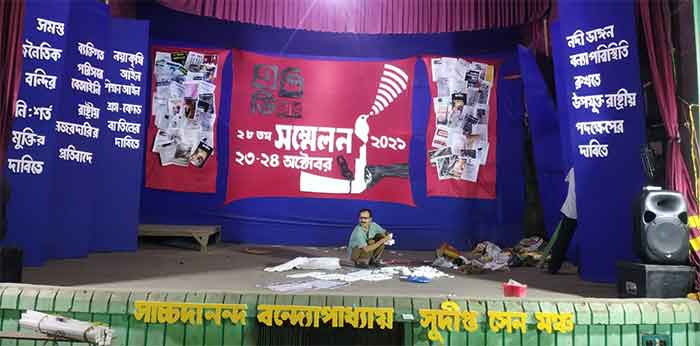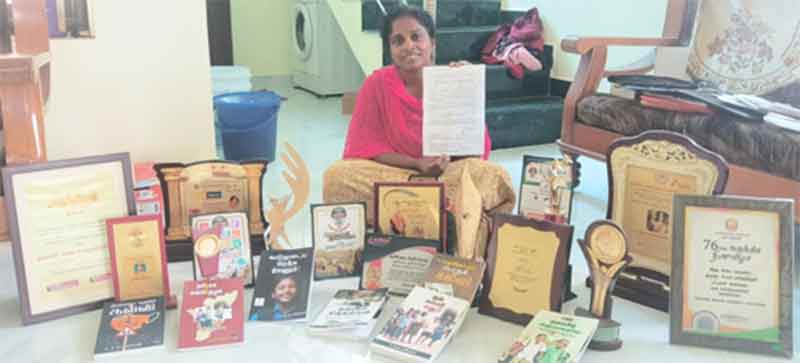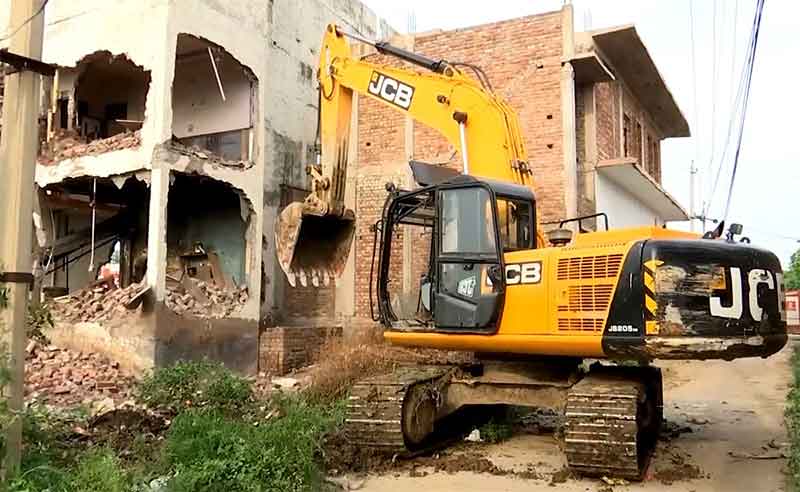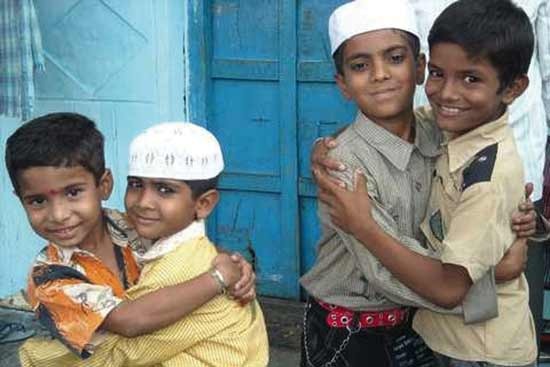
The Association for Protection of Democratic Right, better known as APDR was going to hold its belated (due to pandemic related restrictions) 28th biannual State Convention (রাজ্য সম্মেলন / राज्य सम्मेलन) at Surendranath Vidya Niketan at Sheoraphuli on 23rd & 24th October, 2021. They were forced to suspend the meet under extreme pressure and intimidation by Administration at the last moment when the delegates started pouring in and the preparation for the conference was nearly complete. It was only a few hours left to begin the much awaited Sammelan (Convention). The Biannual Sammelan has additional importance to its members as the APDR being the country’s oldest surviving civil right group has stepped into its fiftieth year of formation on June 25. The plans for the year-long celebration were needed to be chalked out. The Sammelan was meant for the critical evaluation of the work done and the consequent hurdles faced, analysis of the present situation, plan for future works and most importantly the formation of new secretariat that will spearhead APDR for the next two years.
In 1936, Jawaharlal Nehru felt the need of a non-political and broad based civil liberties organisation for the purpose of collecting and disseminating information and educating the masses that culminated into the founding of the Indian Civil Liberties Union (ICLU). Union units were formed at Bombay, Madras, Calcutta and Punjab with Rabindranath Tagore the first Honorary President and Sarojini Naidu the President of ICLU. Booklets, articles and pamphlets written by Rammanohar Lohia, M Venkatarangaiah, S Pratap Reddy were instrumental in popularising of the concept of civil liberties. With the beginning of electoral democracy in 1952 and formation of Congress governments the first stage of civil liberties movement come to a close.
The second chapter of the civil liberties movement began after 20 years. The idea to form a rights organisation in West Bengal seeded in 1968 amid the “orgy of slaughter and brutal repression” resulting in formation of APDR in 1972 followed by the formation of Andhra Pradesh Civil Liberties Committee (APCLC) in 1974 and Organisation for Protection of Democratic Rights (OPDR) in 1977. Jai Prakash Narayan launched the People’s Union for Civil Liberties and Democratic Rights (PUCLDR) in 1976 which later split into People’s Union for Civil Liberties (PUCL) and People’s Union for Democratic Rights (PUDR). Committee for Protection of Democratic Rights (CPDR) and Lokshahi Haq Sangathan too were formed in Bombay in 1977 and 1979 respectively. Formation of APDR in 1972, was a significant moment marking the resurgence of civil liberties movement.
It is APDR that survived two years ban and imprisonment of many of its stalwarts during emergency by Indira Gandhi between 1975 – 77. It is also APDR that paid a heavy price in 1974 when its publication, ভারতীয় গণতন্ত্রের স্বরুপ (translated in English as The True Face of Indian Democracy) was proscribed, its members were harassed and the printing press was raided.
Undeterred by several oppressions APDR, for the last 50 years, has persistently demanded accountability from the state through demonstrations, petitions, fact-finding reports and legal battles seeking punishment and compensation in the cases of torture, custodial deaths, custodial rape and other state excesses. APDR from its very beginning has focused on state repression and the issues of political prisoners. It has all through demanded recognition of the category and rights of political prisoners along with the demand of unconditional release of political prisoners.
APDR organized vigorous campaign against death penalty (in the matter of death sentence on Dhanajoy Chatterjee, accused of rape and murder of a school girl) and on the role of police officers and socially powerful persons behind the death of Rizwanur Rahman, a computer graphic trainer, who married an industrialist’s daughter drew maximum public attention.
Mamata Banerjee closely campaigned with APDR for the campaign of justice for Rizwanur and a loose alliance continued during Singur, Nandigram and Lalgarh movements that changed the political scenario of West Bengal and brought her to power in 2011.
It was again in 2011, that the newly formed Mamata government in West Bengal was reminded by the APDR to fulfill her electoral promise of unconditional release of political prisoners and withdrawal of armed forces from Jangal Mahal. Because the government had no intention to release the political prisoners and withdraw the joint forces, the government of Ms Banerjee started harassing APDR.
The first thing that the new government did was to forbid APDR from holding meetings at Metro Channel in Kolkata’s Esplanade area in November 2011. Incidentally, Metro channel is the same place where time and again Mamata Banerjee protested against Left Front Government’s plan of forcefully acquisition of fertile land of Singur – Nandigram and state atrocities in Jangal Mahal. It is the same place, where Ms Banerjee undertook 26day long Anoshan Satyagraha (Fast for Truth) in December 2006.
A political party that claims to come in power and form government by taking streets, understands the power of protest meetings and rallies very well and is averse in giving space to dissent/ opposition. Therefore, it imposes blanket ban on rallies in college street, protest meetings at various places in Kolkata and in other districts. APDR has always protested against these autocratic gag orders.
APDR’s persistent reminders to the TMC government for its failed promises of unconditional release of political prisoners, condemning its action of doing away with the status of political prisoners, is not liked by the present ruling. APDR wasted no time in pointing out that the state of West Bengal is no less repressive than the government at center. It points out the frequency and the number of persons implicated under various sections of draconian UAPA, on protesters from Bhangar to Darjeeling, from south to North Bengal in last 11years, when the state head laments the custodial death of 84year old Jesuit Stan Swamy arrested in Bhima Koregaon case.
APDR draws attention towards post-poll violence on the cadres of opposition by the ruling party cadres where other civil right groups remained conspicuously silent. Its members were arrested while seeking reason of lathi-charge on senior citizens in front of Sonarpur BDO office while demanding restoration of electricity even after 4days of Amphan cyclone. Six of its members were slapped cases under DMA while they went to meet the BDO Kultali to apprise him of the hardship faced by residents of Kultali – Moipith of Sundarban area due to Yaas Cyclone and to submit a twelve-point charter of demand on relief material distribution, quick disbursal of compensation and construction of permanent environment friendly dam over the river Matla. The organization protested against the Police atrocity (physical violence with communal slur) on Police’s own constable Suraf Hossain attached to a North 24Parganas PS and his wife on July 6 who subsequently suffered a miscarriage. Suraf and his two brothers were arrested and charged with rioting, criminal conspiracy against police. Brothers obtained bail after spending 6 days in judicial custody but Suraf was not taken back in cadre and remained suspended. He was reinstated after civil right activists’ protest led by APDR after two months of suspension on October 4. However, 11 activists were detained for a day in Lalbazar PS on the way to submit a memorandum to the DM South 24Parganas against unlawful suspension on September 28. A case of unlawful assembly was slapped on them.
APDR is quick in condemning the recent arrest of political activist and former student of Viswa-Bharti, Tipu Sultan alias Mustafa Kamal in a five-year-old case of 2016 in Jhargram PS under various repressive sections of IPC, Arms Act and UAPA and link his arrest with the protest against a recent murder and rape incident of a child in Paruldanga which has brought the administrative failure of the state government to the fore.
The state government under Mamata Banerjee like Modi Government at Center finds opportunities in disaster (आपदा में अवसर) in implementing its repressive policies and ebbing away dissent for which the Disaster Management Act, 2005 (DMA) has become a handy tool. DMA is never thought of while holding election rallies, puja celebrations or victory rallies but is remembered only when the protest meetings or rallies are organized demanding opening of educational institutions, regularization of local train service, better health facilities for covid patients as well as for people suffering with other diseases, employments etc.
APDR is quick in pointing out that the protest against land acquisitions or demand for a separate state are not unlawful activities and that hundreds of protesters cannot be implicated under UAPA and put behind bars. There are more than 70 persons still languishing in various jails of West Bengal. It also draws the attention towards the hundreds arrested in 2017 when the agitation that started against the West Bengal Government’s three language policy in the state schools culminated into an intense movement for Statehood. Many of the arrested under the draconian laws like sedition and UAPA are still in jail. In GR case number 430/17 where Bimal Gurung of Gorkha Jan Mukti Morcha is the main accused and has came out of hiding in 2020 after serving ties with BJP and pledging support to TMC is not arrested but the other nine arrested in the same case from the marginalized section are languishing in Darjeeling jails under UAPA for last four years.
Therefore, APDR was to pay for not toeing the line of the ruling party. Though the information regarding the proposed 28th Convention, was given to Candannagar Police Commissioner well in advance on 1st October with a copy to Sheoraphuli Outpost and Srirampur PS and no objection was raised. It was exactly a day before the convention when all the arrangements were made for food and lodging of the delegates, meeting hall too was decorated the local organizers were informed that they cannot hold their convention on the pretext of Covid protection and sought all kinds of papers. When it became obvious to the administration that APDR has completed all the formalities required including that of physical distancing required for covid APDR was bluntly informed that the meeting cannot be held as the local administration is under the pressure from above and that if APDR goes ahead with the announced convention the delegates will be arrested under the DMA.
The government of West Bengal conveniently forgot DMA when its own local MLA Asit Majumdar organised Bijoya Sammelan in jam-packed Rabindra Bhavan of Chuchura a day before the proposed date of Sammelan. DMA was also not invoked when All India Krishak Sangathan (AIKS) organised a three day regional Sammelan at Sarat Sadan in Howrah from October 23 to 25. Disaster is required to be managed only when APDR is organising its two-day Sammelan in the same district of Hooghly, 25 Km away from Howrah and 18 Km away from Chuchura.
For the government of West Bengal drastic reduction in job opportunities and increasing unemployment in the State is no disaster at all. Due to closure of the educational institution at all levels many students are opting out of school to supplement family’s income and girl students are pushed into marriages is not a thing to worry. That the country’s rank in Global Hunger Index(GHI) has fallen to 101 and the hunger in the country is classified as ‘serious’ is not a disaster. That the overwhelming stunting and wasting amongst the children below five is not a disaster. State’s failure in providing health services is not a disaster. That the mass poverty is back in a year due to pandemic induced recession is not disaster. Disaster is there when an organisation speaks of the above and demand life with dignity for all. Therefore, APDR should be stopped.
Nisha Biswas is an activist based in Kolkata.















































